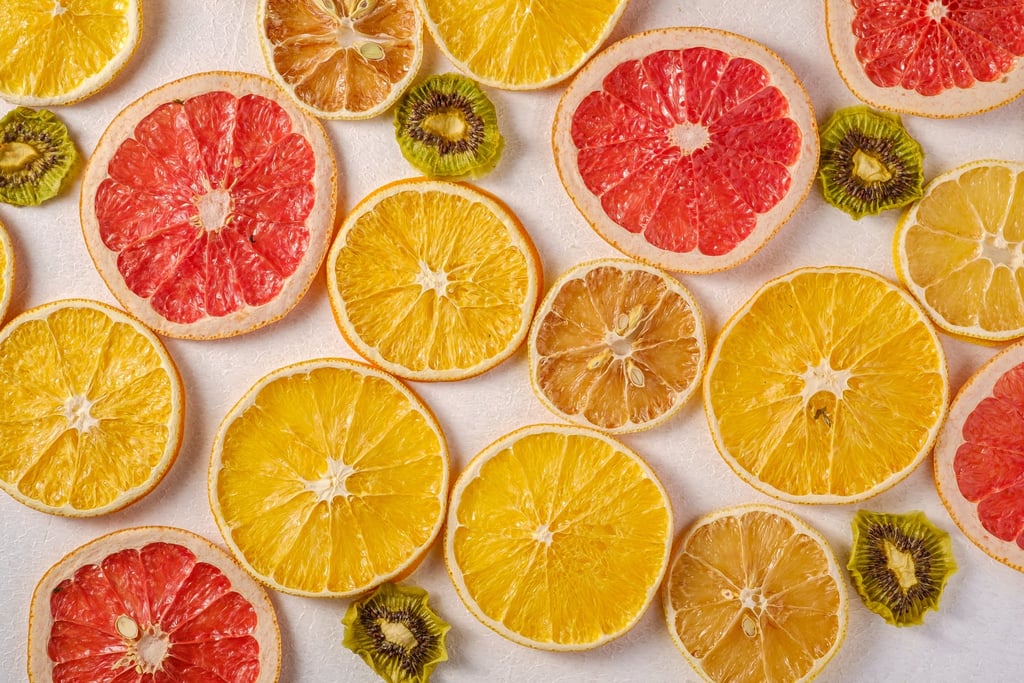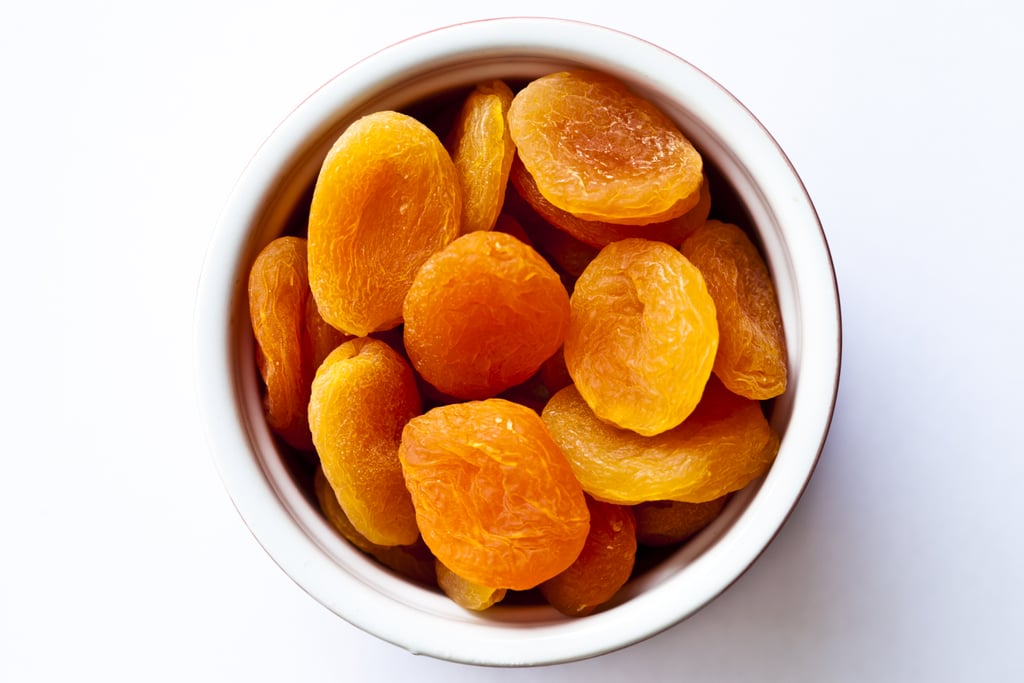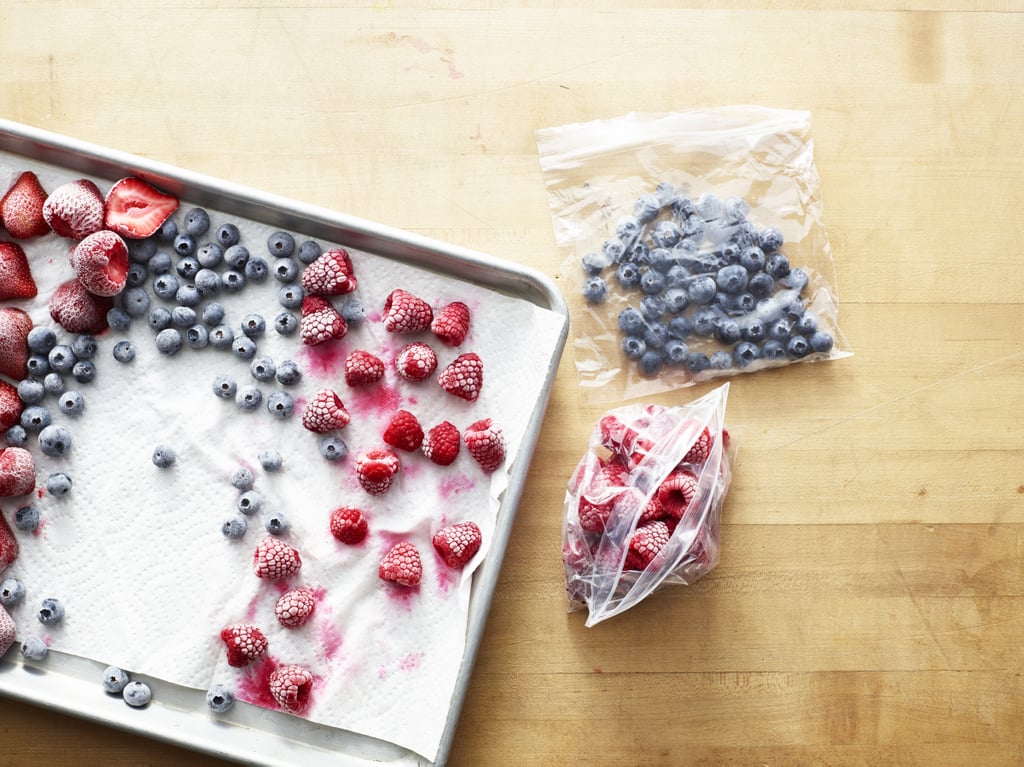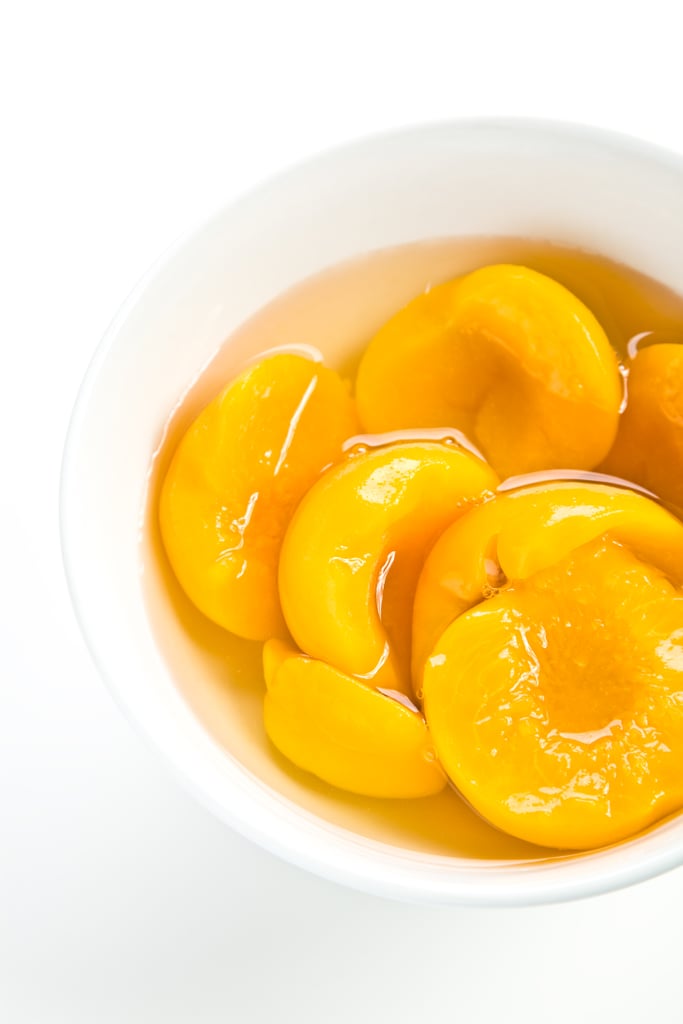Trips to the grocery [1] store typically mean we have our choice of fresh fruit [2] at our fingertips. Depending on the season, ripe berries and juicy melons [3] are gracing the shelves of the produce section for us to toss in our cart and take home to enjoy. But what if you can't get your hands on your favourite fresh fruit?
"If fresh fruit is not available, freeze-dried, dehydrated, frozen, and canned fruit are all great options that provide important nutrients like vitamins, minerals, and antioxidants," Brittany Scanniello [4], RDN, told POPSUGAR. If you're wondering what these alternatives to fresh fruit are and whether they are, in fact, a good shelf-stable choice, read on!
What Is Freeze-Dried Fruit, and Is It Good For You?

Freeze-dried fruit snacks are popping up on grocery store snack shelves, and for good reason! These crunchy and sweet treats are a simple way to sneak in some fruit if you are craving something crunchy. If you haven't had freeze-dried fruit before, some say that the consistency reminds them of the dehydrated space ice cream they used to eat on field trips (in a good way)!
The process of freeze-drying fruit is a scientific and relatively costly process. Essentially, water is removed from the fruit in a way that the structure and shape of the fruit is preserved. If you are looking at a freeze-dried blueberry, for example, you will notice that the shape and size is the same as a fresh berry. The difference is the consistency; the freeze-dried option will be crunchy (like a blueberry chip!) while the fresh berry will be juicy. Since many fruits have a short shelf life due to their high water content, removing the water allows for the fruit to last longer without refrigeration.
Data suggests that freeze-dried fruit is a great option if you are looking for shelf-stable fruit options. Research published in Foods Journal explains that "although some losses in vitamins and other valuable biocompounds can be found after freeze-drying [5], this type of dehydration method is the best to preserve nutritional qualities when compared to other dehydration methods." Studies have shown that, when compared with other preserving methods, freeze-drying fruits like blueberries [6], raspberries [7], and strawberries [8] improved retention of certain beneficial nutrients like antioxidants.
Freeze-dried fruits can be enjoyed on their own while on-the-go or added to cereals, oatmeals, or trail mixes. They are also great when you need a crunchy snack and are trying to stay away from the potato chips!
Is Dried Fruit a Good Substitute For Fresh Fruit?

Dried fruit, or dehydrated fruit, is exactly what the name implies. The fruit of choice is dried to the point that the water is removed. Unlike freeze-dried fruit, the structure of the dehydrated fruit may change — think: the shape of a plump grape vs. the shape of a shriveled raisin. The fruit becomes chewy and dense after the dehydration process. Common dried fruits are raisins, prunes, and apricots. Since the water is removed, dried fruit can last a very long time without spoiling.
Dried fruit can provide comparable amounts of nutrients as their fresh counterpart, with the exception of some nutrients like vitamin C depending on the temperature used during the dehydration process [9].
The glaring difference between fresh and dried fruit is the sugar content [10]. Removing the water in the fruit during the dehydration process concentrates all of the components naturally found in the fruit – including the natural sugar. Ounce for ounce, dried fruit has far more sugar than fresh fruit. For this reason, some people are careful to not overeat these choices. It should also be noted that some dried options (like varieties of dried cranberries) have sugar added to the final product. More sugar means even more calories, so it is something to be mindful about.
Certain dried fruits offer amazing benefits. From prunes supporting bone health [11] to raisins supporting heart health [12], dried fruits can be a part of a healthy diet.
Is Frozen Fruit as Healthy as Fresh?

Most people are comfortable grabbing a bag of frozen broccoli or peas to keep in their freezer but skip the frozen fruit options. This is a shame, because frozen fruit can be an amazing addition to any grocery run.
Frozen fruit is fresh fruit that is quickly frozen and stored. Frozen fruit are often picked and then frozen at the peak of freshness and don't spend as much time in the sun or exposed to the elements during transport when compared with fresh fruit. For this reason, nutrients are often preserved, and in some cases, are higher at the time of consumption.
Take frozen apricots, for example. When compared with fresh, the frozen option had more antioxidants, beta-carotene, vitamin C, and phenols [13], according to data published in the Journal of Food Science. This study demonstrates that key nutrients in frozen apricots are retained or amplified upon processing. Likewise, the vitamin content of frozen foods like strawberries and blueberries are comparable to and occasionally higher than that of their fresh counterparts [14], according to the Journal of Agriculture and Food Chemistry.
Frozen fruit can be kept in your freezer for months and can be enjoyed year-round. Using frozen fruit in smoothie recipes, dessert recipes, and even enjoyed on their own is a tasty (and often less expensive) fruity option if you can't get your hands on fresh fruit.
Is Canned Fruit Good For You?

Canned fruit may bring back memories of your school cafeteria lunches. There is nothing like a canned fruit salad to drum up old memories. But was that fruit salad actually giving you any nutrition?
Canned fruit can be a great option depending on which liquid is used in the canning process. Canned fruit needs to be preserved in liquid, and the choices can vary from heavy syrup to natural juice. In general, choosing fruit that is canned in its own natural juices is going to be a less-sugary and therefore lower-calorie and better-for-you option vs. any syrups.
In terms of vitamins and minerals, data suggests that canned fruits can fuel your body with necessary nutrients just as well as fresh in certain cases. For example, canned apricots have been shown to have more beta carotene and antioxidants when compared with fresh [15], and the nutritional content of canned peaches has been shown to be comparable to that of fresh peaches [16].
It is important to note that many canned fruit options remove the skin of the fruit before it is preserved. In some cases (like pears and apples), the skin houses most of the fruit's nutrients. Therefore, removing the skin removes the source of antioxidants, fibre, and other nutrients. Reading food labels and becoming more familiar with the benefits of certain fruits can help guide which varieties are better choices than others.
Canned fruit can be a convenient, economical, and satisfying option. As long as it is not swimming in syrupy sugar and you are not missing out on important nutrients by not eating the skin, enjoy adding your canned fruit to yoghurts, cottage cheeses, and classic dishes!